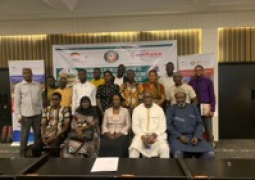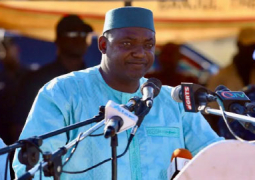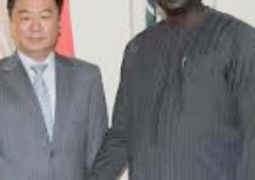
Minister Keita made this disclosure on Friday night at the Mansa Kunda Ministerial Town Hall meeting held at the Sir Dawda Kairaba Jawara conference Centre in Bijilo.
The meeting was organised by Dr. Ismaila Ceesay, the minister for Information with the aim to enhance relevant information sharing to the public on the ongoing developments undertaken by the government.
He revealed that the country’s economy continues its impressive growth path, with real GDP estimated to grow by 5.3% in 2023, outperforming the sub-Saharan average which is supported by good performance in agriculture, services, construction, and telecommunications.
He acknowledged that growth in the tourism sector remains low; lagging behind the pre-pandemic levels, adding that in 2024, growth is expected to expand to 5.8% with potential of reaching 6.0% -underpinned by stronger agricultural productivity, construction fast than anticipated and ICT.
“Debt to GDP declined from 85% in 2022 to 75% in 2023 and the trend is downwards, successfully completed the first 3-year IMF ECF programme and successfully negotiated a successor ECF programme and CPIA SCORE increased to 3.1 for the first time in 7 years; surpassing the sub-Saharan average,” he said.
He also revealed that The Gambia was among the top 10 fastest growing economies in Africa in 2023 in ADB economic outlook 2024.
Minister Keita said that robust fiscal policies to support anchored on reforms of the growth trajectory, transparency international ranking improved from 110 in 2022 to 98 in 2023. He said a leap of 12 and ongoing reforms in the public financial management are expected to strengthen the fiscal space.
He revealed that key amongst these reforms includes collaboration between tax policy and tax administration that has addressed major tax compliance gaps developing a domestic resource mobilisation strategy to provide a roadmap of tax policy in the medium term and developed a duty waiver policy to help improve compliance, administration and data matching to inform tax enforcement mechanism.
Amongst other key reforms, develop a tax expenditure policy to guide the administration, monitoring and reporting of tax expenditures, rationalisation of agencies.
He said IFMIS continues to roll-out to subvented agencies, such as LGAs and cited the case of Edward Francis Small Teaching Hospital.
Others, he said is to increase spending quality-through a sound and credible cash management process to align spending to programmes and resources availability and commitments to cash transfer programme to most vulnerable households with D30 million already disbursed.
He cited an annual provision of fertiliser to farmers- with a subsidy package of more than D1 billion in 2024, saying the government would continue to provide groundnut price subsidy.
He added that that would include increase focus for funding public infrastructure projects from domestic resources and digitalisation of the nation’s tax administration processes.
He said in the area of improved fiscal governance, The Gambia with support from IMF, conducted a governance diagnostic to help identify weaknesses and vulnerabilities.
Read Other Articles In Headlines

GIZ ECOWAS FRSD launches expert group on agric value chain financing
Jun 16, 2023, 10:42 AM




